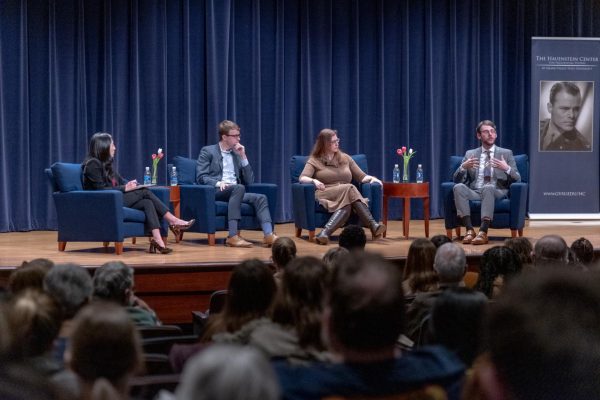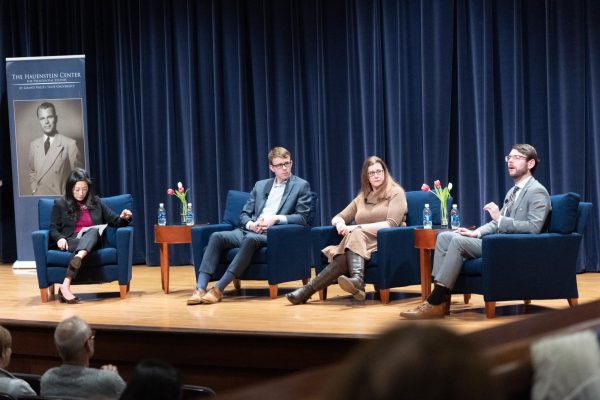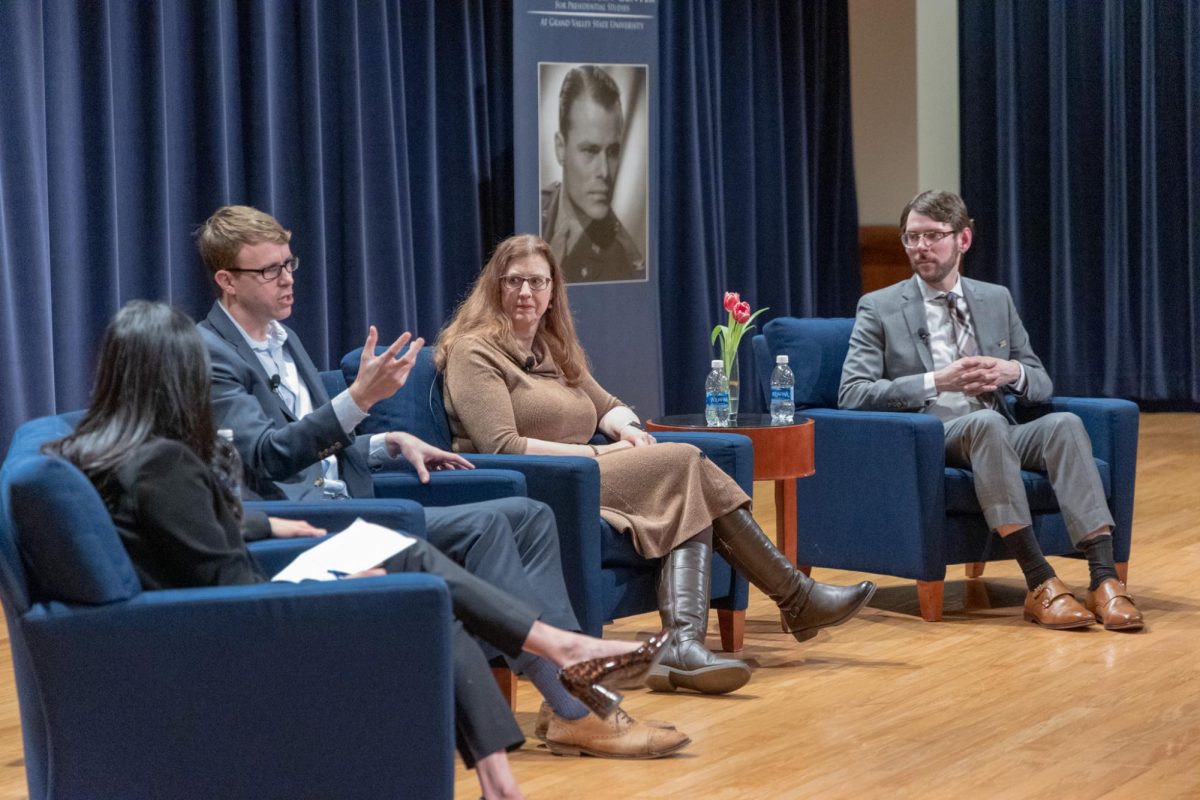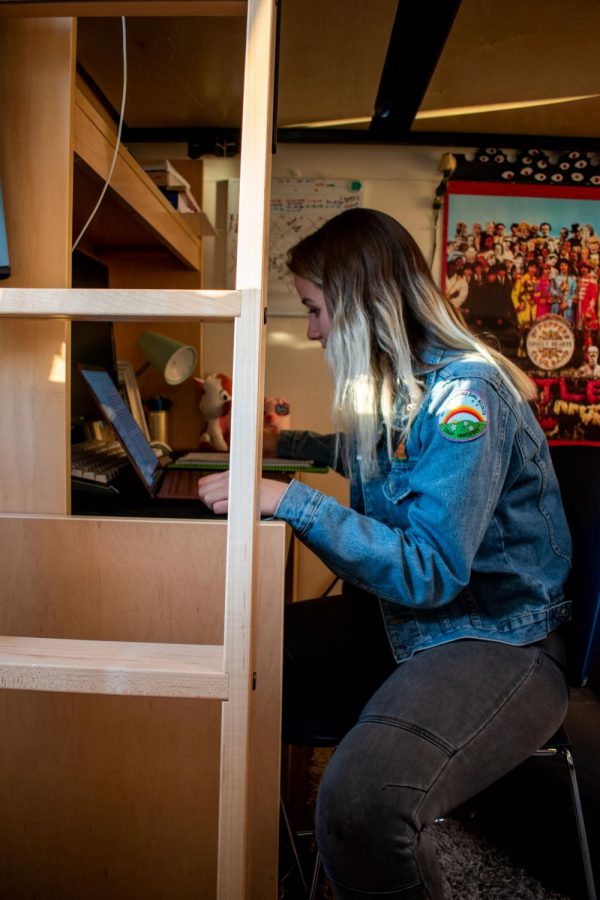Although immigration is a historically controversial topic in the United States, the Common Ground Initiative Event Series by Grand Valley State University’s Hauenstein Center for Presidential Studies aims to create a space for discourse around the topic.
On Jan. 25, the Common Ground Initiative hosted a Bipartisan Policy Panel on immigration in the United States at the Loosemore Auditorium in the DeVos Center on the Pew Campus. The event featured Aaron Reichlin-Melnick of the American Immigration Council, Theresa Cardinal Brown of the Bipartisan Policy Center and David Bier of the Cato Institute. The panel centered around analyzing issues within the U.S. immigration system and exploring possible solutions from multiple political perspectives.
Megan Rydecki, Director of the Hauenstein Center and GVSU alumna, moderated the event. Before the panelists were introduced, Iris Kokalari, a Cook Leadership Academy Fellow Candidate, gave an introductory speech.
“No policy debate is as deeply entwined with the concept of citizenship as that of immigration policy,” according to the event description. “How do we choose who can become an American, and what should their path to citizenship look like? What expectations should we have of immigrants, and what expectations should they have of us?”
The panelists’ discussion presented several different issues within the current immigration system and emphasized that it’s simply outdated. Panelists said that because the immigration system was created decades ago and no longer fits the current American landscape.
“The question we should be asking is ‘what kind of system should we have?’” Brown said.
Additionally, the panelists address how only a small number of refugees and immigrants are actually allowed to enter the United States. As a result, there are significant backlogs in processing hopeful immigrants that can last for years. This situation can lead people to feel they have no option but to try to enter the country illegally.
“I believe the biggest takeaway is that the immigration system is broken and is failing everyone involved, native-born Americans and immigrants alike,” said Kahler Sweeny, Common Ground Initiative Program Manager. “Neither progressives or conservatives seem to be happy with the status quo, but our polarized society cannot seem to find agreement on what needs to change.”

Several possible solutions were introduced by the three panelists. One such solution was the creation of a “Migration Office,” since current immigration policy is split amongst several different areas within the U.S. government. Another suggestion included advocating for citizens to participate in local governments and push for politicians they feel can enact change through governmental offices.
The panel addressed that immigrants have many different countries of origin. For instance, while many immigrants may be originally from Mexican decent, they are not the only group of people immigrating to the U.S. in large numbers. Brown informed the audience that people from many different countries, including Africa, India, Venezuela and China, are present at the border, seeking better opportunities or a safer community in the states.
All three panelists were in agreement that immigration is economically beneficial for the U.S. and for the state of Michigan. According to American Immigration Council research, eight percent of Michigan’s labor force is made up of immigrants. As consumers, entrepreneurs and taxpayers, immigrants contribute billions of dollars to Michigan’s local economy.

“Something that also stuck with me was that even though they were talking about stats, the moderator emphasized that ‘we are talking about people, not policies,’ which I feel is important to remember as anyone converses about immigration and the policies surrounding them,” said GVSU student Paige Sanders.
By making the event bipartisan, the hosts hoped to depolarize the tension between Republicans and Democrats concerning immigration policy and citizenship. Historically, Democrats have called for a system reform that would improve the treatment of immigrants and grant them more opportunities while still maintaining a secure border. Republicans, on the other hand, tend to lean toward stricter regulation and increased deportation, as well as strong border security. The aim of the Bipartisan Panel was to combine the best ideas from both parties to find practical and unbiased solutions.
“We encourage a bipartisan approach because whether we are happy about it or not, politics will always necessitate that we face challenges and solve issues alongside those who think differently than we do,” Sweeny said.










